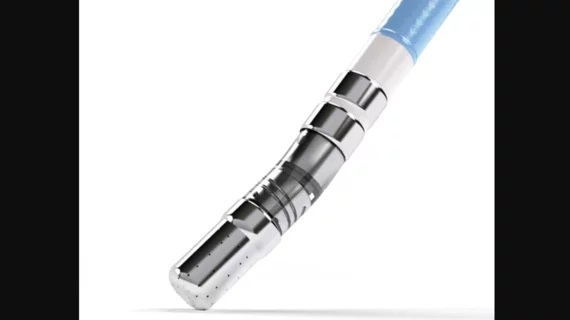FDA approves several Biosense Webster devices for fluoroscopy-free ablation procedures
Biosense Webster, a Johnson & Johnson company, has received U.S. Food and Drug Administration (FDA) approval for multiple devices from its cardiac ablation portfolio to be used as part of a zero-fluoroscopy workflow. This includes the company’s ThermoCool SmartTouch SF catheter, ThermoCool SmartTouch catheter, Carto Vizigo bi-directional guiding sheath, Pentaray Nav Eco high-density mapping catheter, DecaNav mapping catheters and Webster CS catheter.
Because fluoroscopy involves continuous X-ray imaging, it is associated with relatively high radiation doses. Using these devices as part of a zero-fluoroscopy workflow, which replaces X-rays with an alternative modality such as ultrasound, ensures patients are exposed to less radiation and can avoid wearing burdensome protective equipment.
The FDA’s decision was based in part on data from the REAL AF registry, which Biosense Webster first launched back in 2019.
“Cardiac ablation procedures for the treatment of atrial fibrillation (AFib) usually require fluoroscopy to guide the advancement and positioning of intracardiac catheters, resulting in considerable radiation exposure for patients, operators and support medical staff as well as a high orthopedic burden from protective equipment such as lead aprons,” Jose Osorio, MD, a veteran electrophysiologist and president of Heart Rhythm Clinical and Research Solutions, said in a prepared statement. “Eliminating or reducing radiation exposure is beneficial to patients as well as physicians and staff working every day in the electrophysiology lab.”
“As a result of this update, our teams can now proactively discuss the fluoroscopy alternative workflow with our customers to reinforce the benefits of the Biosense Webster portfolio of products,” added Jasmina Brooks, Biosense Webster’s president.

